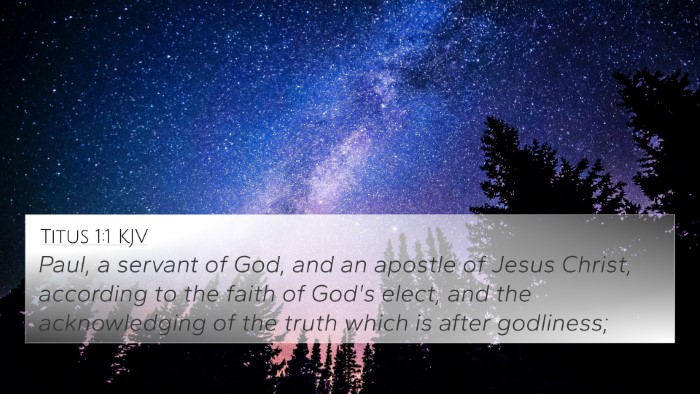Understanding John 3:33
The verse John 3:33 states, "He who has received His testimony has set his seal to this, that God is true." This verse encapsulates a profound truth about the acceptance of Christ's testimony and the recognition of God's truth. Here, we will delve into a summarized meaning of this verse, drawing insights from public domain commentaries by Matthew Henry, Albert Barnes, and Adam Clarke.
Interpretation and Insights
In this verse, the act of receiving Jesus' testimony is critical, indicating a deep level of acceptance. The recipient of this truth is seen as affirming God's veracity. The focus is not merely on intellectual acknowledgment but on a heartfelt acceptance that seals one’s belief in God’s character and promises.
Key Themes Explored
- Testimony of Jesus: The verse emphasizes the importance of Jesus' testimony in understanding who God is. It implies that through Jesus, we find the clearest expression of divine truth.
- Sealing the Truth: The act of setting one's seal denotes authenticity and agreement with God's truth. It is a figurative expression of personal affirmation and commitment.
- The Nature of God: The statement affirms God’s nature as inherently truthful. Acknowledging this truth is central to the believer’s faith.
Bible Verse Cross-References
John 3:33 can be cross-referenced with several other Bible verses that enhance its meaning and provide a richer understanding. Here are some significant cross-references:
- John 3:11: "Truly, truly, I say to you, we speak of what we know and bear witness to what we have seen..." This verse parallels the testimony theme.
- 1 John 5:10: "Whoever believes in the Son of God has the testimony in himself..." highlights the theme of personal acceptance of God's testimony.
- John 8:32: "And you will know the truth, and the truth will set you free." Freedom is connected to the acceptance of God's truth.
- Romans 3:4: "Let God be true and everyone a liar..." emphasizes the reliability of God’s word and truth.
- Hebrews 10:23: "Let us hold unswervingly to the hope we profess, for he who promised is faithful." Reflects the faithfulness of God tied with truth.
- John 14:6: "I am the way, and the truth, and the life." Jesus as the embodiment of truth reinforces John's message.
- 2 Corinthians 1:20: "For all the promises of God find their Yes in Him." Reiterates God's truthfulness in Jesus Christ.
Comparative Bible Verse Analysis
By employing tools for Bible cross-referencing, we can see how John 3:33 interacts with themes of authenticity, divine truth, and the person of Jesus in other Scriptures. This highlights a vital exercise in understanding the biblical narrative as a cohesive unit.
Inter-Biblical Dialogue
Connections between Bible verses provide an enriching context that often deepens our understanding of Scripture. For instance, the contrast between acceptance and rejection of testimony appears in numerous passages. Analyzing these links can allow us to draw comprehensive insights into the nature of faith and belief.
Thematic Connections
The thematic Bible verse connections found in this verse extend beyond mere acknowledgment. They encourage believers to internalize God’s truth and act upon it, thereby forming a transformative relationship with Him.
Tools for Bible Cross-Referencing
In engaging with Scripture, tools for Bible cross-referencing like concordances and Bible cross-reference guides can help readers identify how individual verses are connected within the greater biblical framework. Understanding how to use Bible cross-references effectively can enhance your study and comprehension of biblical texts.
Conclusion
John 3:33 serves as a powerful reminder of the importance of Jesus' testimony and its implications for our understanding of God. By exploring the connections between this verse and others, we gain insights into the essence of faith, the nature of truth, and the foundations of our belief. Through careful cross-referencing and thematic analysis, we can deepen our engagement with Scripture and appreciate the divine truth it conveys.












